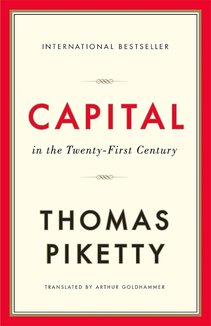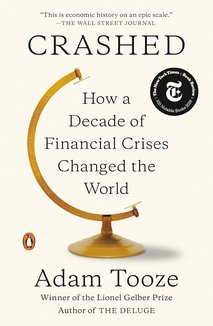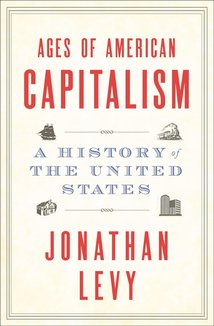Recommended Books

Capital in the Twenty-First Century
Authors:
Thomas Piketty
,
Arthur Goldhammer
ISBN 13:
978-0674979857
A New York Times #1 Bestseller An Amazon #1 Bestseller A Wall Street Journal #1 Bestseller A USA Today Bestseller A Sunday Times Bestseller A Guardian Best Book of the 21st Century Winner of the Financial Times and McKinsey Business Book of the Year Award Winner of the British Academy Medal Finalist, National Book Critics Circle Award “It seems safe to say that Capital in the Twenty-First Century , the magnum opus of the French economist Thomas Piketty, will be the most important economics book of the year―and maybe of the decade.” ―Paul Krugman, New York Times “The book aims to revolutionize the way people think about the economic history of the past two centuries. It may well manage the feat.” ― The Economist “Piketty’s Capital in the Twenty-First Century is an intellectual tour de force, a triumph of economic history over the theoretical, mathematical modeling that has come to dominate the economics profession in recent years.” ―Steven Pearlstein, Washington Post “Piketty has written an extraordinarily important book…In its scale and sweep it brings us back to the founders of political economy.” ―Martin Wolf, Financial Times “A sweeping account of rising inequality…Piketty has written a book that nobody interested in a defining issue of our era can afford to ignore.” ―John Cassidy, New Yorker “Stands a fair chance of becoming the most influential work of economics yet published in our young century. It is the most important study of inequality in over fifty years.” ―Timothy Shenk, The Nation

Crashed: How a Decade of Financial Crises Changed the World
Author:
Adam Tooze
ISBN 13:
978-0143110354
WINNER OF THE LIONEL GELBER PRIZE A NEW YORK TIMES NOTABLE BOOK OF 2018 ONE OF THE ECONOMIST'S BOOKS OF THE YEAR A NEW YORK TIMES CRITICS' TOP BOOK "An intelligent explanation of the mechanisms that produced the crisis and the response to it...One of the great strengths of Tooze's book is to demonstrate the deeply intertwined nature of the European and American financial systems." --The New York Times Book Review From the prizewinning economic historian and author of Shutdown and The Deluge , an eye-opening reinterpretation of the 2008 economic crisis (and its ten-year aftermath) as a global event that directly led to the shockwaves being felt around the world today. We live in a world where dramatic shifts in the domestic and global economy command the headlines, from rollbacks in US banking regulations to tariffs that may ignite international trade wars. But current events have deep roots, and the key to navigating today’s roiling policies lies in the events that started it all—the 2008 economic crisis and its aftermath. Despite initial attempts to downplay the crisis as a local incident, what happened on Wall Street beginning in 2008 was, in fact, a dramatic caesura of global significance that spiraled around the world, from the financial markets of the UK and Europe to the factories and dockyards of Asia, the Middle East, and Latin America, forcing a rearrangement of global governance. With a historian’s eye for detail, connection, and consequence, Adam Tooze brings the story right up to today’s negotiations, actions, and threats—a much-needed perspective on a global catastrophe and its long-term consequences.

Ages of American Capitalism: A History of the United States
Author:
Jonathan Levy
ISBN 13:
978-0812995015
A leading economic historian traces the evolution of American capitalism from the colonial era to the present—and argues that we’ve reached a turning point that will define the era ahead. “A monumental achievement, sure to become a classic.”—Zachary D. Carter, author of The Price of Peace In this ambitious single-volume history of the United States, economic historian Jonathan Levy reveals how capitalism in America has evolved through four distinct ages and how the country’s economic evolution is inseparable from the nature of American life itself. The Age of Commerce spans the colonial era through the outbreak of the Civil War, and the Age of Capital traces the lasting impact of the industrial revolution. The volatility of the Age of Capital ultimately led to the Great Depression, which sparked the Age of Control , during which the government took on a more active role in the economy, and finally, in the Age of Chaos , deregulation and the growth of the finance industry created a booming economy for some but also striking inequalities and a lack of oversight that led directly to the crash of 2008. In Ages of American Capitalism, Levy proves that capitalism in the United States has never been just one thing. Instead, it has morphed through the country’s history—and it’s likely changing again right now. “A stunning accomplishment . . . an indispensable guide to understanding American history—and what’s happening in today’s economy.”— Christian Science Monitor “The best one-volume history of American capitalism .” —Sven Beckert, author of Empire of Cotton